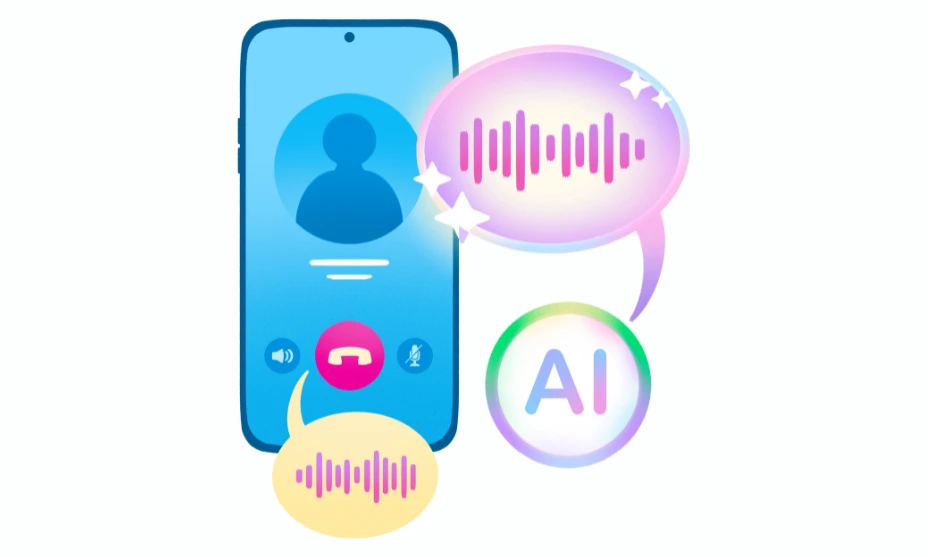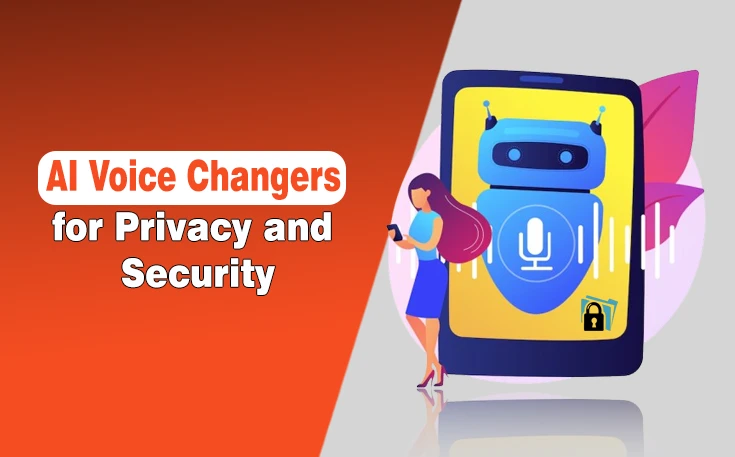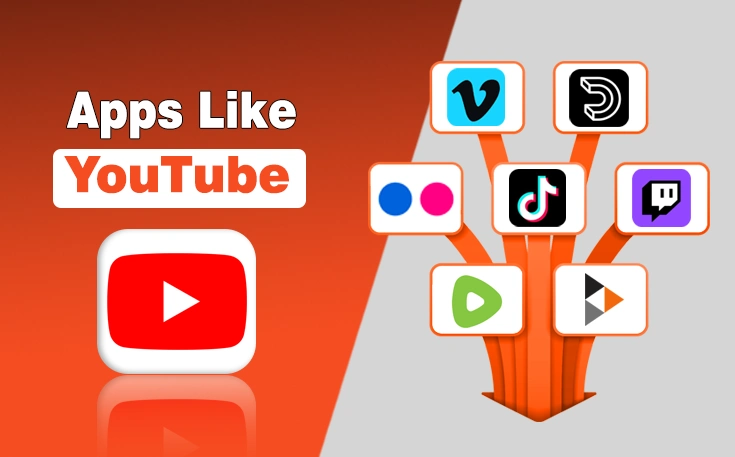In this rapidly evolving digital landscape, protecting personal identity has become more complex and important than ever before. Voice recognition technology has advanced at a rapid pace, transforming our vocal signatures into near-biometric identifiers.
AI voice changers have emerged as a sophisticated solution, offering individuals a powerful tool to safeguard their privacy and maintain control over their vocal identity.
Continue reading this guide to learn about AI voice changers for privacy and security.
The Vulnerability of the Human Voice
Our voices are intricate personal identifiers that reveal far more than we realize. Beyond communication, they can unconsciously expose age, emotional state, geographical origin, and unique personal characteristics.
With the rise of advanced deepfake and voice cloning technologies, our vocal signatures have become a potential security risk, enabling cybercriminals to impersonate individuals, bypass authentication systems, and conduct sophisticated social engineering attacks.
The Science Behind AI Voice Changers
Modern AI voice changer combine machine learning, signal processing, and acoustic engineering to modify vocal characteristics in real-time.
They adjust pitch, timbre, rhythm, accent, and emotional tone, creating either synthetic voices or subtle alterations to existing speech. This technology allows users to communicate naturally while safeguarding their identity.

Practical Privacy Applications
Voice changers have rapidly evolved from novelty tools to essential privacy instruments across multiple domains:
1. Digital Communication Protection
Professionals and individuals can now maintain anonymity during various digital interactions:
- Journalists safeguarding confidential sources
- Whistleblowers securely share sensitive information
- Online content creators protecting personal boundaries
- Remote workers maintain professional privacy
- Individuals managing online personal safety
2. Personal Safety and Security
For those facing potential harassment or targeted threats, voice changers offer critical protection:
- Masking identifying vocal characteristics
- Preventing voice-based tracking
- Reducing risks of targeted harassment
- Creating additional layers of personal security
- Empowering individuals to control their vocal exposure
3. Mental Health and Telehealth
- Providing anonymity for sensitive consultations
- Reducing social stigma in mental health support
- Enhancing patient comfort during difficult discussions
- Protecting patient confidentiality
- Supporting individuals with communication challenges
Technological and Ethical Considerations
While offering remarkable privacy benefits, responsible use of voice-changing technologies requires careful consideration:
- Select software with robust encryption and security features
- Understand the legal implications of voice modification
- Use technologies ethically and transparently
- Remain aware of potential misuse scenarios
- Continuously evaluate the technological landscape
The Future of Voice Privacy
Emerging developments in AI voice-changing technologies promise even more sophisticated solutions:
- Hyper-realistic voice transformations
- Near-instantaneous processing capabilities
- Seamless integration with augmented and virtual reality platforms
- Enhanced accessibility features
- More nuanced privacy control mechanisms
Choosing the Right Voice Changer
Selecting an appropriate AI voice changer requires a comprehensive evaluation of multiple critical factors. The ideal solution should seamlessly blend technological sophistication with user-friendly functionality while prioritizing privacy and performance.
1. Audio Quality and Transformation Naturalness
The hallmark of an exceptional voice changer lies in its ability to produce natural-sounding voice transformations. Look for solutions that:
- Maintain clear speech intelligibility
- Minimize artificial artifacts or robotic distortions
- Provide multiple voice profile options
- Support nuanced emotional inflections
- Preserve underlying speech characteristics
Advanced algorithms should transform your voice without compromising communication quality, creating a seamless and authentic auditory experience.
2. Real-Time Processing Capabilities
Performance is crucial in voice-changing technologies. Evaluate systems based on:
- Minimal latency during voice transmission
- Smooth, uninterrupted audio processing
- Low computational resource requirements
- Consistent performance across different hardware
- Ability to handle complex vocal inputs
The best solutions provide instantaneous transformations without perceptible delays or processing lags.
3. Cross-Platform Compatibility
Modern voice changers must offer flexible integration across multiple devices and platforms:
- Desktop computer support (Windows, macOS, Linux)
- Mobile device compatibility (iOS, Android)
- Integration with communication platforms
- Web browser extensions
- Gaming platform support
- Seamless connection with VoIP applications
Versatility ensures you can protect your identity across various digital communication channels.
4. Comprehensive Security Protocols
Privacy protection extends beyond voice transformation. Critical security features include:
- End-to-end encryption
- Secure data handling practices
- No permanent voice data storage
- Anonymized processing
- Regular security updates
- Compliance with data protection regulations
Prioritize solutions that treat your vocal data with the highest level of confidentiality.
5. Depth of Customization Options
Sophisticated voice changers offer extensive personalization:
- Multiple voice transformation profiles
- Fine-tuning of vocal parameters
- Custom voice effect creation
- Emotional tone modulation
- Background noise management
- Accent and dialect simulation
The more control you have, the more effectively you can protect your identity.
6. User Interface and Ease of Use
Technical advancement must be balanced with user-friendly design:
- Intuitive control panels
- Simple configuration processes
- Clear, accessible settings
- Minimal technical knowledge required
- Responsive customer support
- Regular software updates
- Comprehensive user documentation
An ideal voice changer should feel like a natural extension of your communication tools, not a complex technical challenge.
7. Additional Considerations
When making your final selection, also evaluate:
- Pricing models and subscription options
- User reviews and reputation
- Performance across different audio input devices
- Ongoing research and development commitment
- Ethical use guidelines
Conclusion
AI voice changers represent a pivotal innovation in personal privacy protection. They offer individuals unprecedented control over their vocal identity, bridging the gap between technological advancement and personal security.
As our digital world becomes increasingly interconnected, these technologies will play a crucial role in maintaining personal boundaries and protecting individual privacy. The key lies in embracing these tools thoughtfully, ethically, and with a comprehensive understanding of their potential and limitations.





